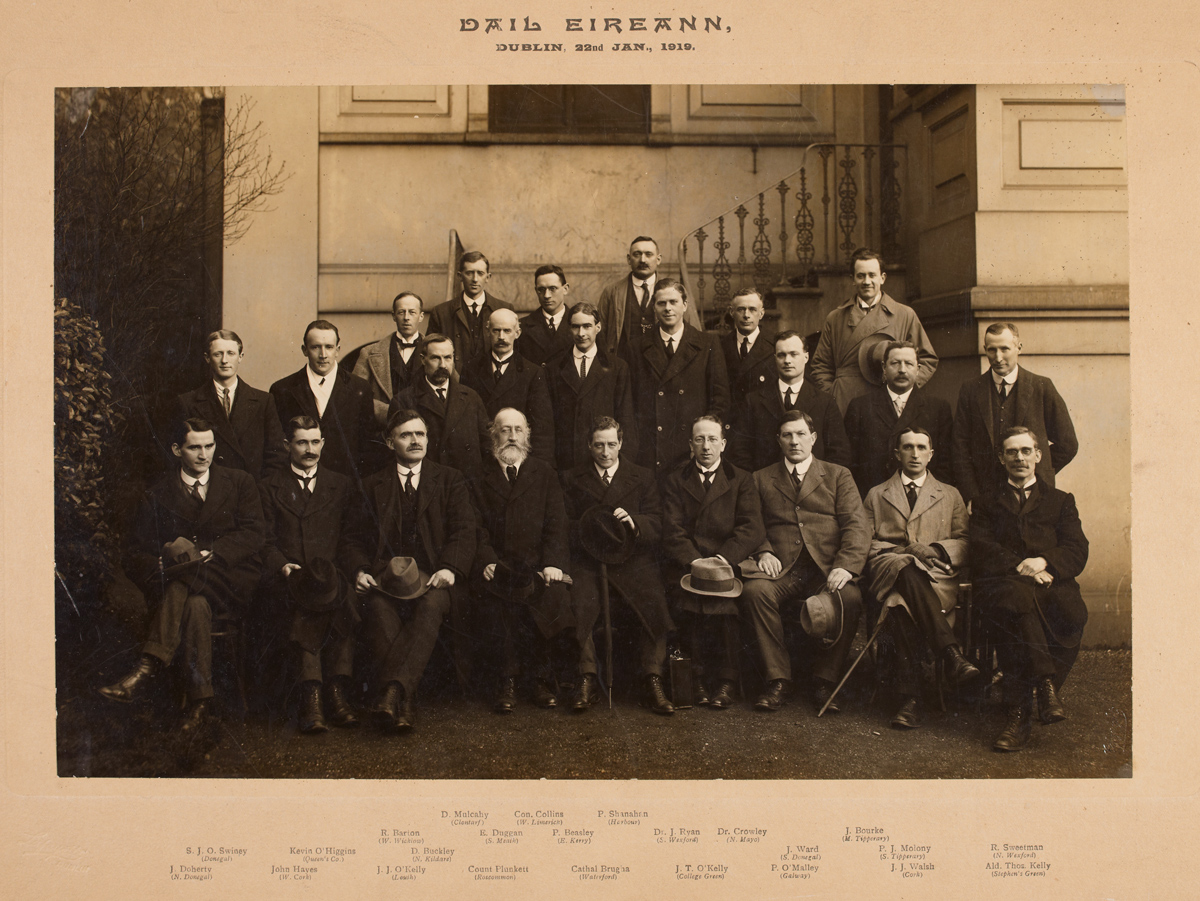Farce, humiliation, insanity - What the papers say about the First Dáil
Dublin, 22 Jan 1919 - Responses from the national daily newspapers to the establishment of Dáil Éireann have been varied and, for the most part, negative.
The Irish Independent has acknowledged that yesterday’s deliberations in the Mansion House constituted a ‘bold’ and ‘novel’ move on the part of the republican party, one that was guaranteed to command ‘a large share of public attention at home and abroad’.The paper praised the ‘gravity and decorum’ of the proceedings and suggests that this ‘must have been a disappointment to certain correspondents of the British press’.
The newspaper did not publish the text of the declaration of independence and states that it cannot agree with its terms because it believes continued association with Great Britain to be in Ireland’s best interests. Further, it considers the ‘prospect of the republicans realising their aim’ to be ‘remote’.
The Independent stated that it has nothing like the same faith that Sinn Féin does in the Paris peace conference and has urged caution from the country’s new political leaders.
‘Now more than ever there is a necessity for the nation to keep a hold upon itself, to think well and carefully before it commits itself irrevocably to a course which it cannot see clearly to the end.’
The unionist Belfast Newsletter has declared the goings-on in Dublin as both a ‘farce’ and ‘dangerous’. However, the newspaper believes that the Sinn Féiners are ‘aware that they might as well as ask for the moon as for independence, and yet they make multitudes of ignorant Nationalists believe that they are going to get it’.
The editorial continues: ‘The Sinn Féiners, like the Germans, desire the destruction of British sea power, and of the whole British empire, and that is one reason why they demand independence.’
The Irish Times, the voice of southern unionism, has viewed the events in the Mansion House as at both ‘futile and unreal’ and a ‘grave warning to the Irish people’. The declaration of Irish independence was an act in defiance of the British empire by young men who had ‘not the slightest notion of that Empire’s power and resources and not a particle of experience in the conduct of public affairs. These men are today the elected representatives of three-fourths of the Irish people, and the more quickly Ireland becomes convinced of the folly which elected them the sooner her sanity will return.’
For the Freeman’s Journal, so long a cheerleader for the Irish Parliamentary Party, the big question that arises out of the Mansion House gathering is – what next? Unless it is proposed to take steps to give practical effect to what occurred, ‘the whole proceedings were, in our opinion, humiliating in the last degree to the dignity of the national cause, and can have no other result than to make the Irish people cut a ridiculous figure in the eyes of the world.’
‘On the other hand, if the proceedings were seriously meant, and if there is any intention to attempt to carry the decisions into effect, we greatly fear that we are on the eve of one of the most tragic chapters in the history of Ireland.’
[Editor's note: This is an article from Century Ireland, a fortnightly online newspaper, written from the perspective of a journalist 100 years ago, based on news reports of the time.]





















